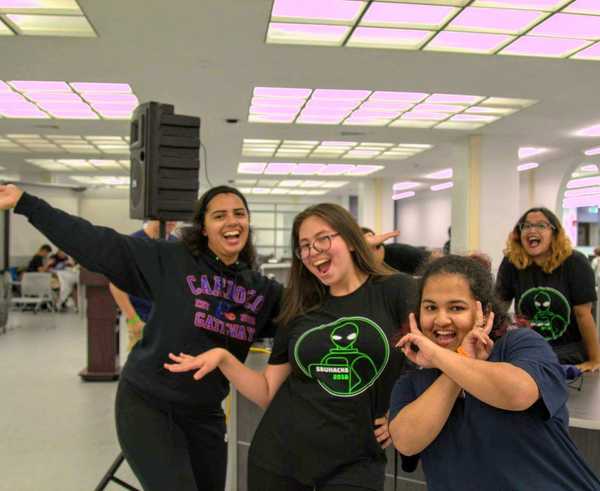In the 1950’s, white American citizens began migrating in droves out of inner cities to suburban areas. This phenomenon, aptly dubbed white flight, drained the tax revenue of cosmopolitan areas, as middle-class citizens fled for the comfort and security of picket fences and well funded public schools. As a result, the inner cities began to decline economically. The infrastructure noticeably deteriorated. Schools, which by no coincidence had recently desegregated, were deprived of funding to which they had become accustomed. Segregation was perpetuated through social policies, regardless of its technical legal repeal in 1964. Crime rates rose quickly in reaction to this sudden lack of resources, and America, instead of blaming the white, middle-class families who so arrogantly abandoned their communities, financially supported them with tax dollars.
This would take place 20 years after James Truslow Adams popularized the phrase "American Dream" in his 1931 book Epic of America. These actions will be performed by the silent generation, who will grow up with Superman and Batman saving the gritty cities of Metropolis and Gotham, which look a lot like Baltimore, Detroit, and Chicago.This generation will watch King Kong climb the Empire State Building, and they will yearn for a simpler time, before kids wanted to watch films more than play outside, or wanted to read novels more than comics, and they will gripe about how the cities just aren’t what they used to be.Ultimately, they will take their middle-class incomes and high school educated 2 parent households and move to the homogenous communities of the suburbs and they will be the first generation to grow up with the phrase: American Dream.
The development of the silent generation, and its chronological marriage to the American Dream is nothing short of fascinating. The very name, the silent generation, is derived from their notable proclivity towards individualism and personal advancement over social progress.The American dream, of course, is not a community effort, but a hero’s journey, and beyond that, a zero-sum game. These are children, and perhaps much younger siblings, of the Greatest Generation and their privilege was demonstrated in their social policies.This very phrase, Silent Generation, reflected their practice of social and political self-centrism. Historically, this era can be traced to a sea change of American values. There are many other social and political tipping points in American history, though I am partial to the 1950s only if to obnoxiously co-opt it from those who laud the time as America’s idealized peak. One could choose Japanese Internment camps as the moment when America’s altruistic principals officially crumbled, or before that the civil war, a time when our country literally and un-ironically split into two countries over states rights (a common misspelling of slavery). Maybe it only lived between the time the pen was put to paper to write: “We the People,” and somewhere along the way scrolled out the 3/5th’s compromise. A strong argument could be made for any number of moments between 1776 and 2017. Regardless, all possibilities lead to a single unresolved question: “How can the “American Dream’ not be for all Americans?”
In the 1950’s, many white Americans moved to the suburbs and consequentially left behind many other Americans who had little money or power.Those left behind did not consent to be forgotten by the government or their fellow citizens. They did not consent to this abandonment, nor to the disintegration of their public schools, nor to the planting of crack in their communities.It is in these moments, the ones where American’s do not consent through a democratic process, that we pave the way the silencing and marginalization of minority groups.
Consent is an interesting word. Both noun and verb, consent is something you have, give, and do; a concept which requires action and reality to link arms with illusiveness and abstraction. One cannot physically hand consent to someone, but it is shared on a daily basis, is on your person at all times, and is a fragile value that requires common understanding. The purpose of consent is to create safety and provide an environment where individual choices are treated with respect and voices are valued. Is having this power of consent, being able to wield it and have it respected, not what the American dream is truly about?
America’s disconnection from its own promise of possibility, the American Dream, has become recently evident through copious accusations of sexual assaults perpetrated by some of our nations most powerful influencers. Countless women and (comparatively nominal though certainly marked)men have stepped forward in the past weeks to speak out on their personal assault experiences at that hands of these men. The fact of these assaults is enough to render them heinous alone, and yet for me, they have additionally born light on America’s growing disconnect from its own founding principles. Did this dissociation begin with the Silent generation or have we been heading towards this moment for a much longer period of time?The answer is less relevant than the nationwide self-reflection needed to course correct.When we, as a nation, allow some to have choice and silence or disempower others, we pave the way for multiple scenarios where Americans get taken advantage of.The longer we accept that those with access to resources make choices that affect others, without their consent, the more we get desensitized to the inequalities of our society. Our country has stood by and watched American cities abandoned and deprived of resources, leaving the marginalized Americans who live there denied access to the American Dream. My proposition is simple: we must be reminded of our own consent. Our right to wield it, our duty to respect others use of it, our fundamental requirement of it. Once we are able to both recognize our own power to consent, as well as the fact that we are entitled to have that consent respected and to respect others, we will be poised to face our deeper inequalities and restore the American dream.



















